Science deepens our sense of mystery and wonder about the world around us, but also, it allows us to change the world around us.
Martin John Rees was born in York, England, the only child of two teachers. His parents founded Bedstone College, a progressive boarding school in Shropshire, near Wales. Young Martin studied there and at Shrewsbury School until he entered Trinity College, Cambridge, where he graduated with first-class honors in mathematics. By his own account, he was not initially drawn to astronomy and was considering a career in economics when a series of new discoveries drew his attention from the earthly marketplace to the stars above.
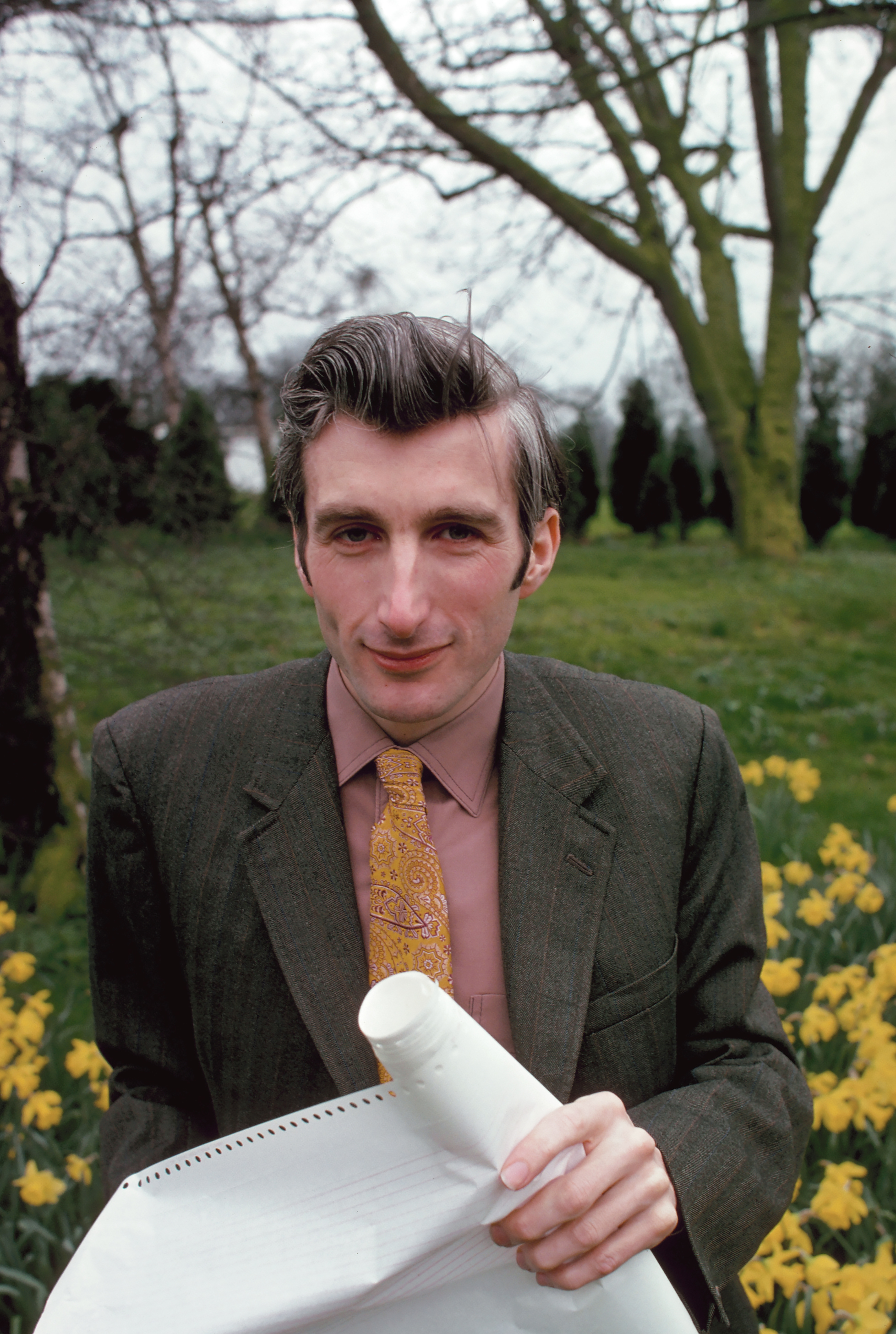
New technology, including more powerful telescopes and the first space probes, made the mid-1960s a heady time for astrophysics and cosmology. The first confirmation of the Big Bang theory of the universe’s origin and the discovery of previously unknown phenomena such as neutron stars and black holes made the study of the stars especially exciting to an ambitious young scientist, eager to make his mark. Rees completed a Ph.D. in astrophysics at Cambridge in 1967 and undertook postdoctoral research and fellowships in Britain and visiting professorships at Caltech, Princeton, and Harvard in the United States.
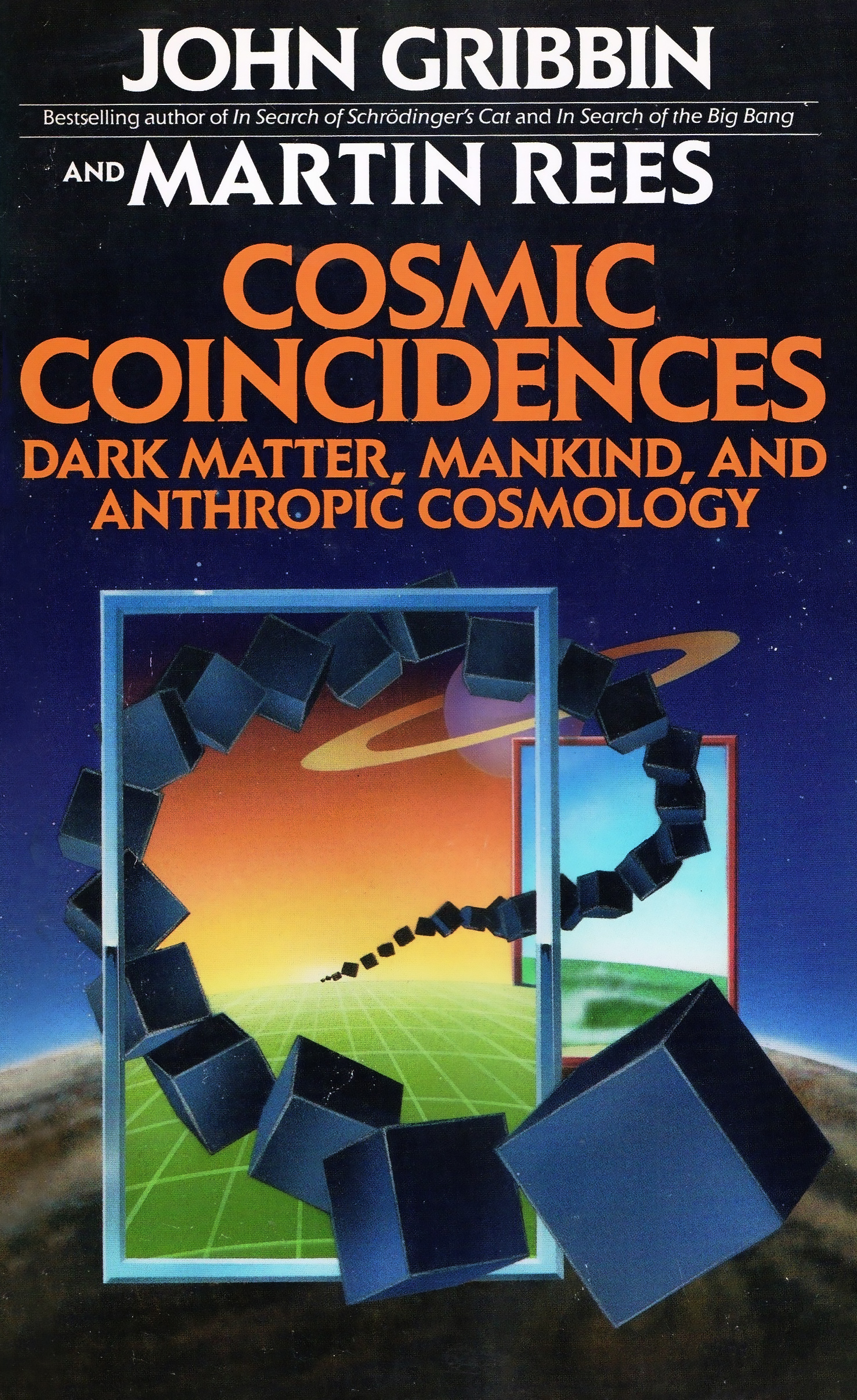
Returning to Cambridge, he rose quickly in his field. At age 30, he was elected to the prestigious chair of Plumian Professor of Astronomy and Experimental Philosophy. He conducted important research in the origin of cosmic microwave background radiation and in the formation and clustering of galaxies. His early study of the distribution of quasars helped to discredit the previously accepted “steady-state” theory of the universe. In 1984, he received the Heineman Prize of the American Institute of Physics.
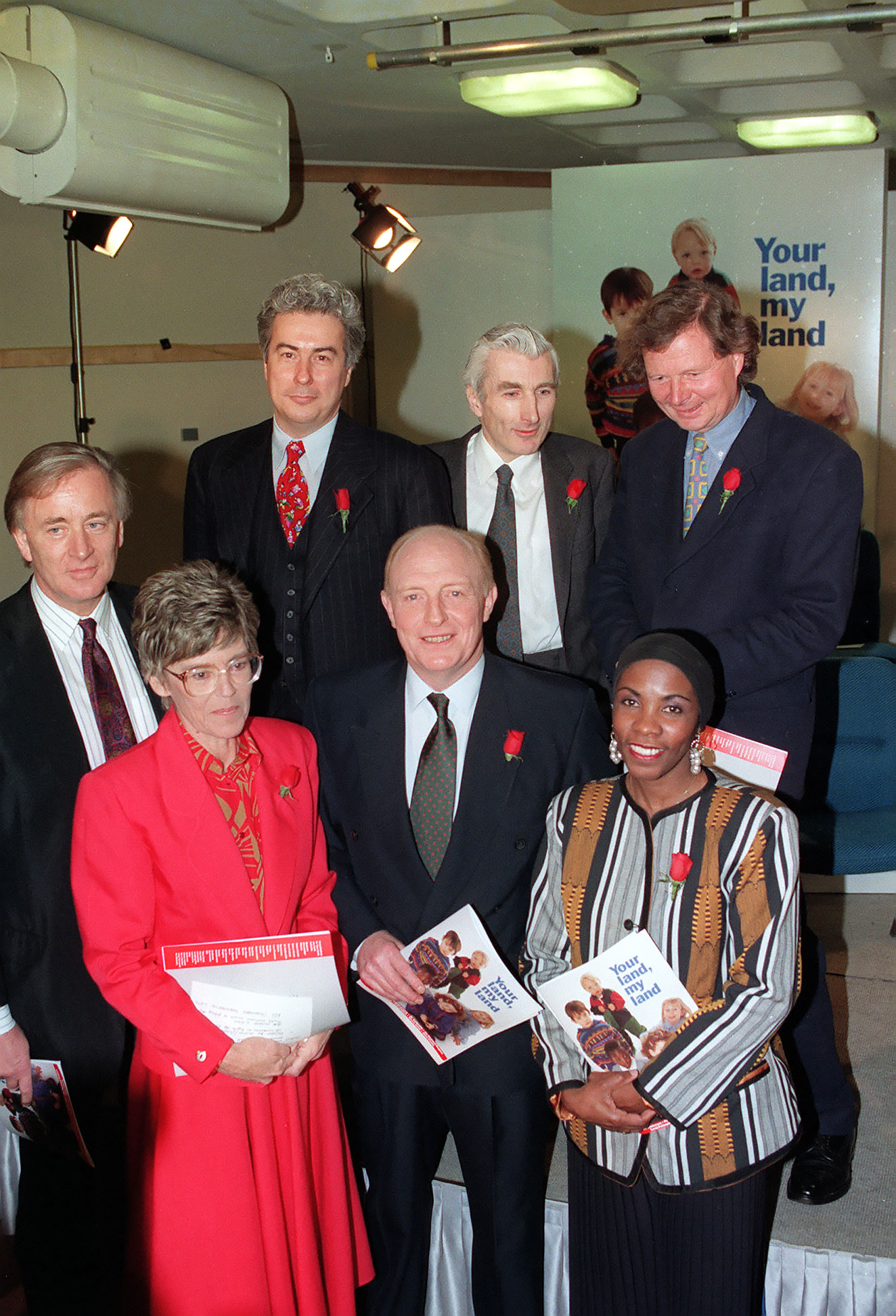
In 1986, Dr. Rees married Caroline Humphrey and they made a home in Cambridge, where, in addition to his professorship, he directed the Institute of Astronomy from 1987 to 1991. One of the world’s leading cosmologists, he was the first to propose the fantastic — and now widely accepted — theory that high-energy deep-space quasars, such as those seen through the Hubble Space Telescope, derive their energy from enormous black holes.
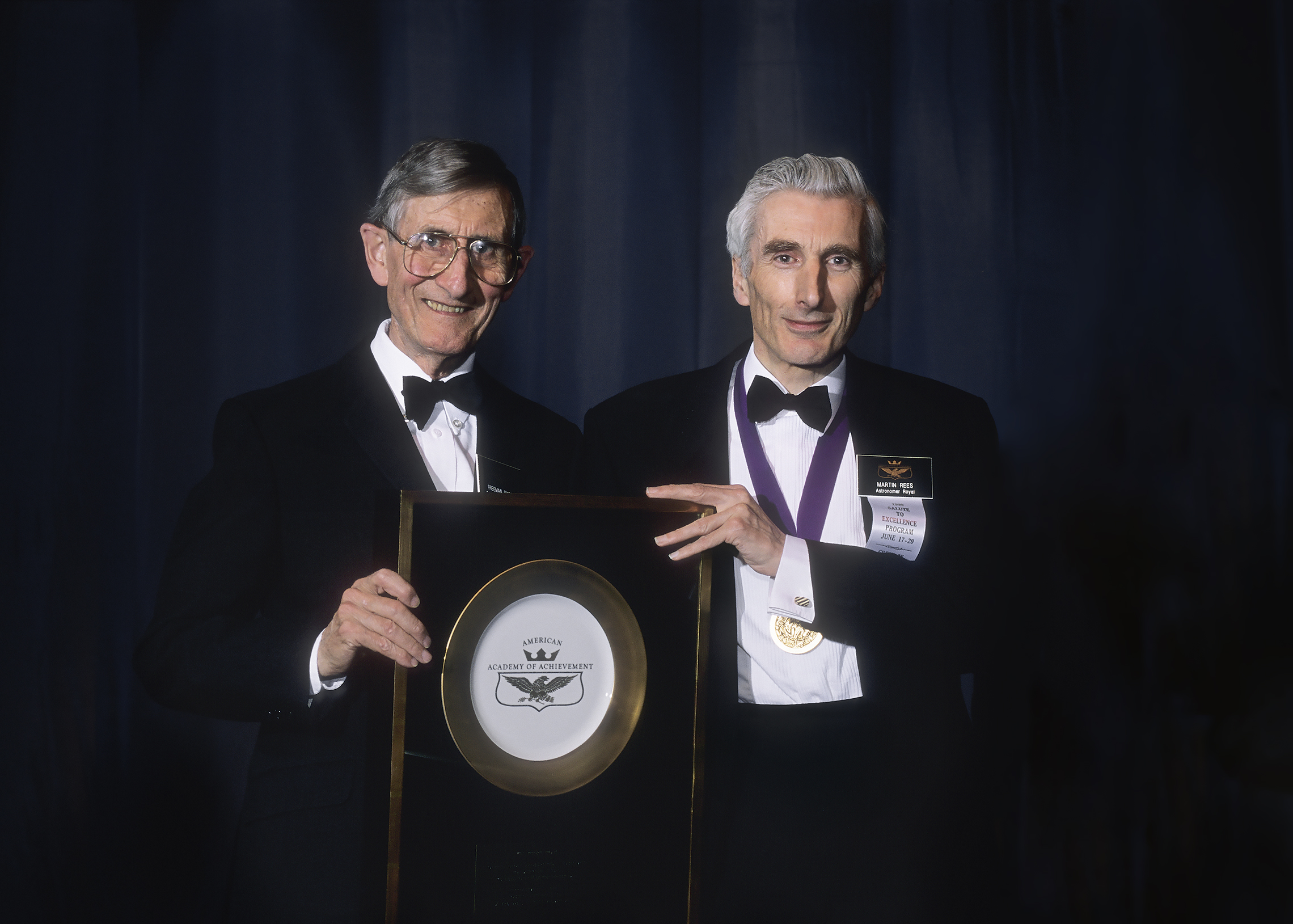
For many years, he has entertained speculations concerning the “anthropic principle,” the idea that the universe cannot be described without implying the existence of an intelligence capable of perceiving it. One implication of “anthropic universe” speculation is that a “multiverse,” comprising an unknown number of other cosmic systems, resulted in the natural selection of one that could be perceived by intelligent creatures. Dr. Rees shared his thoughts on this and many other matters in his 1989 book, Cosmic Coincidences: Dark Matter, Mankind, and Anthropic Cosmology.
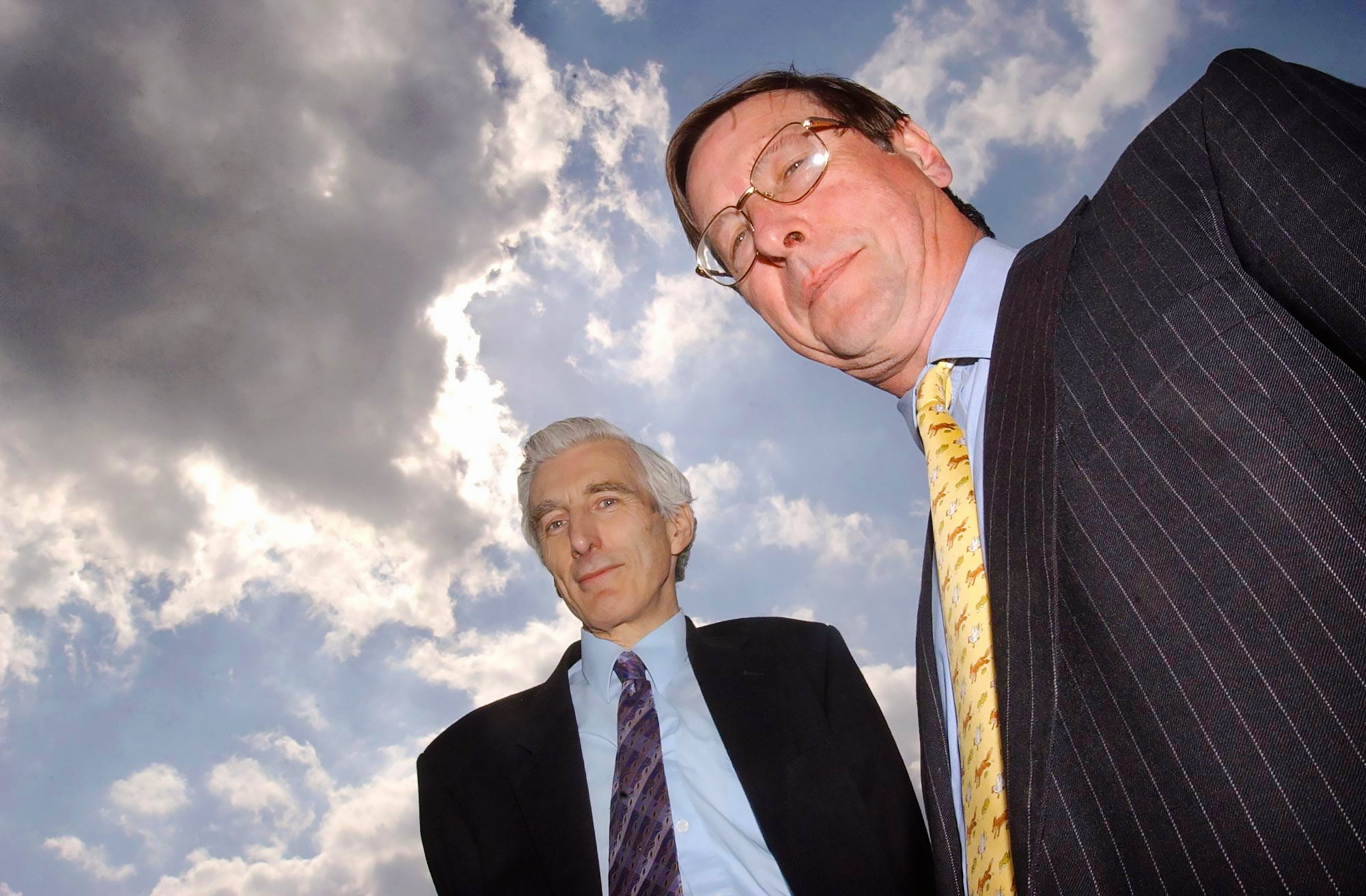
Since the 1990s, he has continued research in the area of gamma-ray bursts and into the end of the so-called “cosmic dark ages” the mysterious period between the Big Bang and the formation of the first stars. In 1992, he became president of the Royal Astronomical Society and was knighted for his services to science.
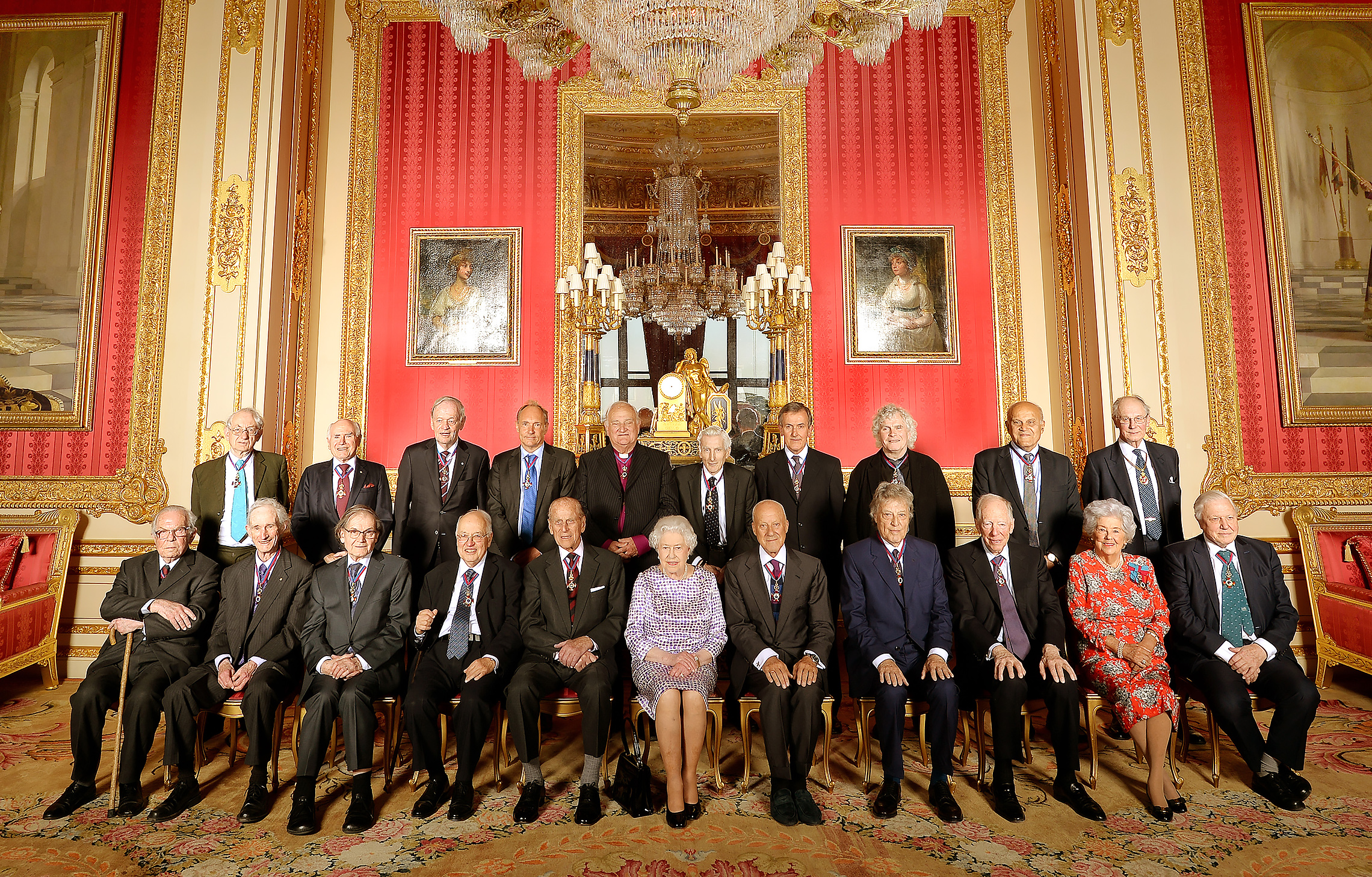
To date, Sir Martin is the author or co-author of more than 500 research papers, mainly on astrophysics and cosmology, as well as numerous magazine and newspaper articles addressing the challenges that arise at the interface of science, ethics, and public policy. In addition to scientific works such as New Perspectives in Astrophysical Cosmology (1995), he has written half a dozen books for the general reader, including Gravity’s Fatal Attraction (1995). In 1995, he was named Astronomer Royal.
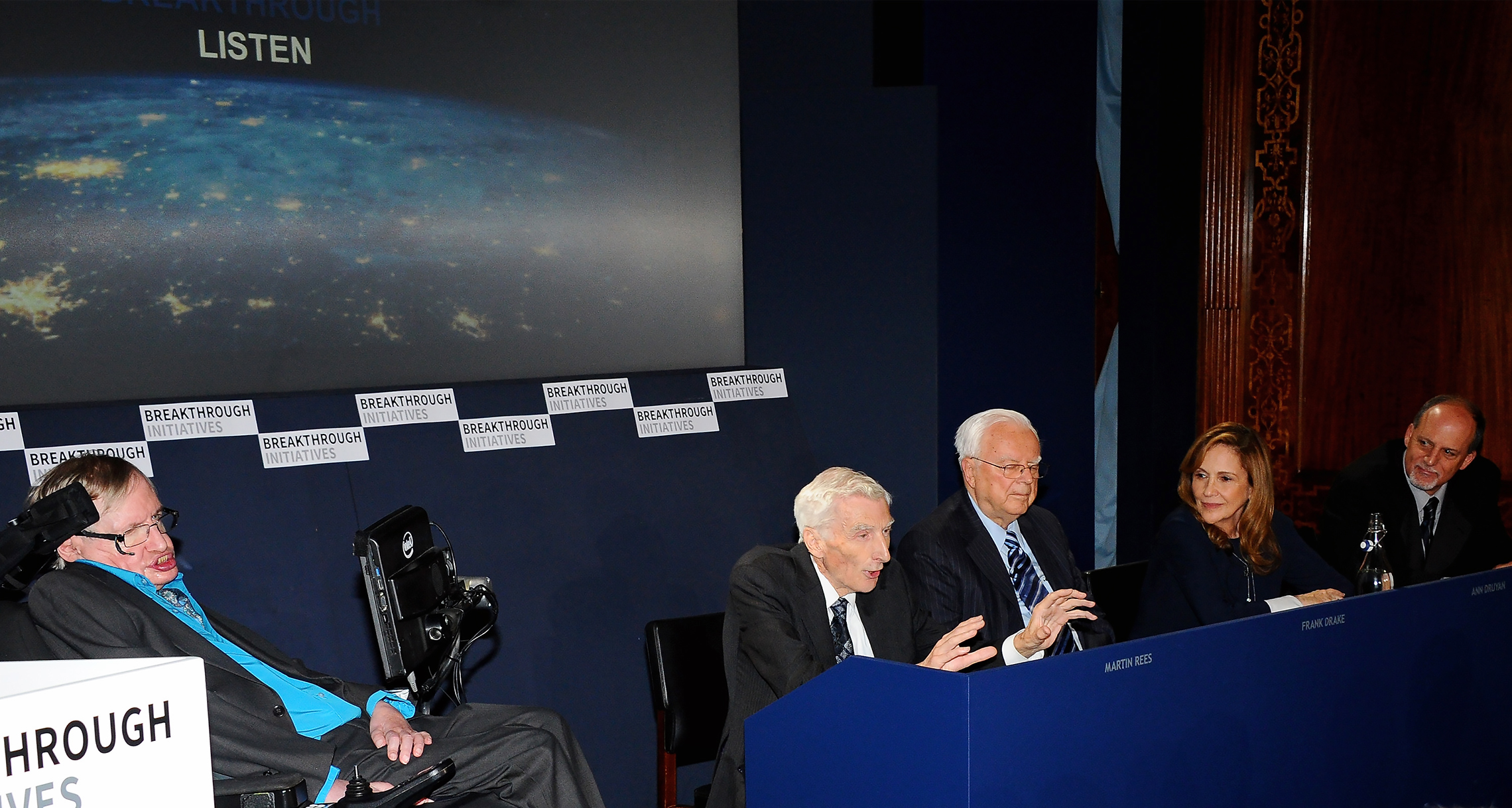
In the following years, in addition to his research, he continued to produce books for the general reading public, Before the Beginning: Our Universe and Others (1997), Just Six Numbers: The Deep Forces That Shape the Universe (1999) and Our Cosmic Habitat (2001). Among his concerns are the challenges arising from the application and possible misuse of new technology, in particular, the danger of irreparable damage to our environment. He addressed these issues in Our Final Century: Will the Human Race Survive the Twenty-first Century? (2003; published in the United States as Our Final Hour.)
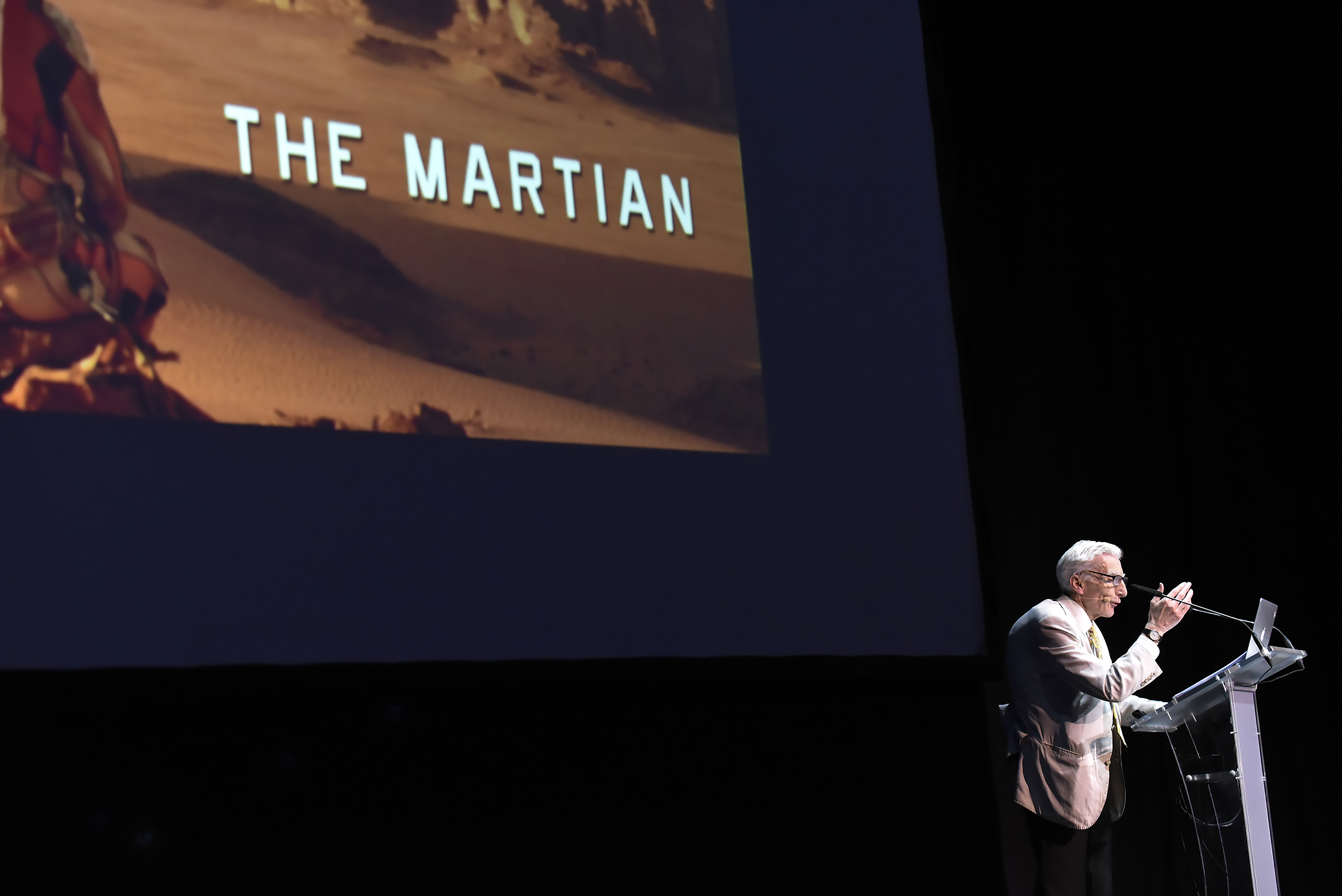
In 2003, Sir Martin received the Albert Einstein Award from the World Cultural Council. The following year, he became Master of Trinity College, Cambridge. He was elevated to the House of Lords as Baron Rees of Ludlow in 2005. That same year, he became President of the Royal Society, the world’s oldest independent scientific association, serving in that position until 2010.
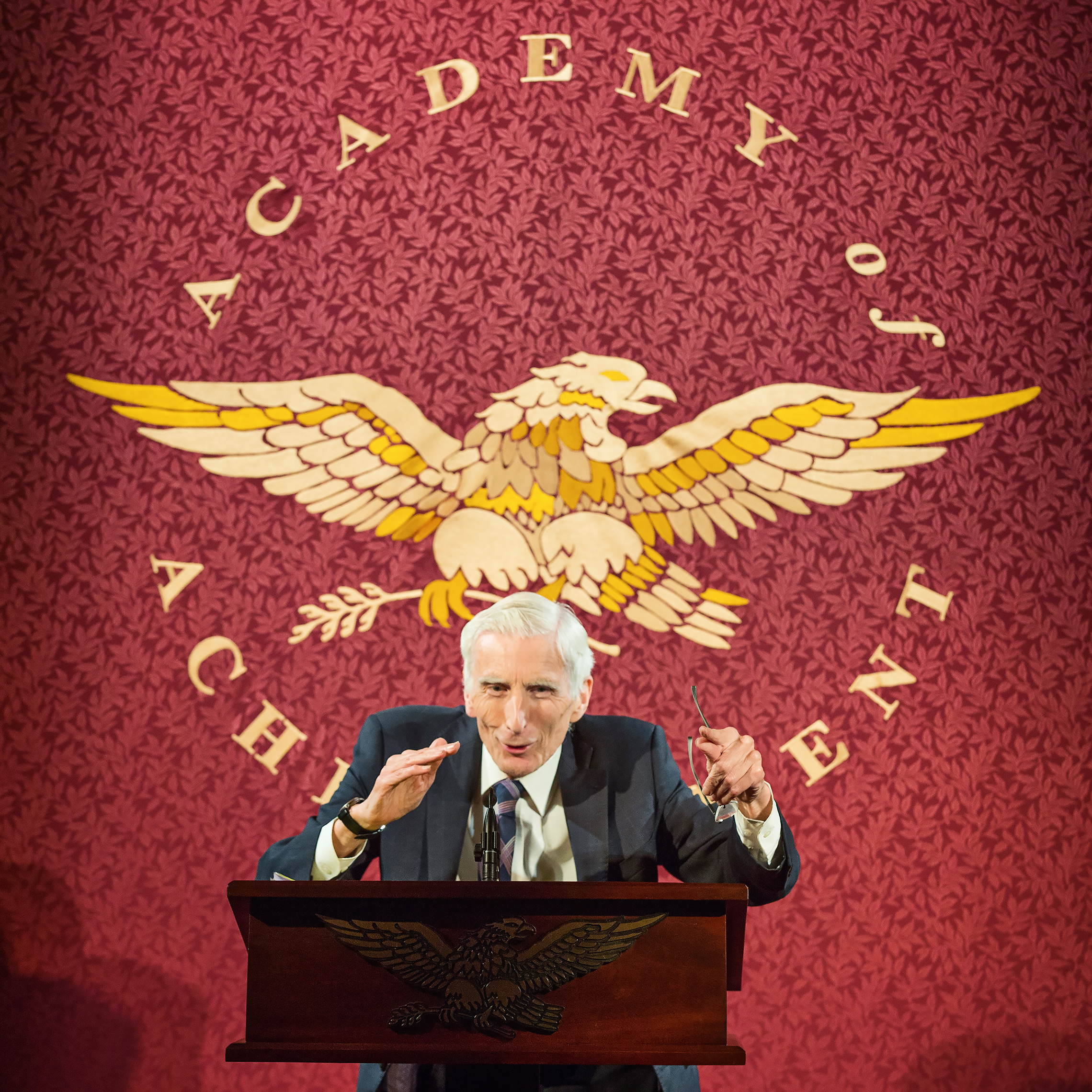
He shared his thoughts on the future of science in his 2011 book, From Here to Infinity. His longtime concern with ethical issues in science, as well as his exploration of the anthropic principle, led to his being awarded the Templeton Prize in 2011, for “affirming life’s spiritual dimension… through insight, discovery or practical works.” Although Lord Rees holds no religious views per se, he has long encouraged respect for religious points of view.
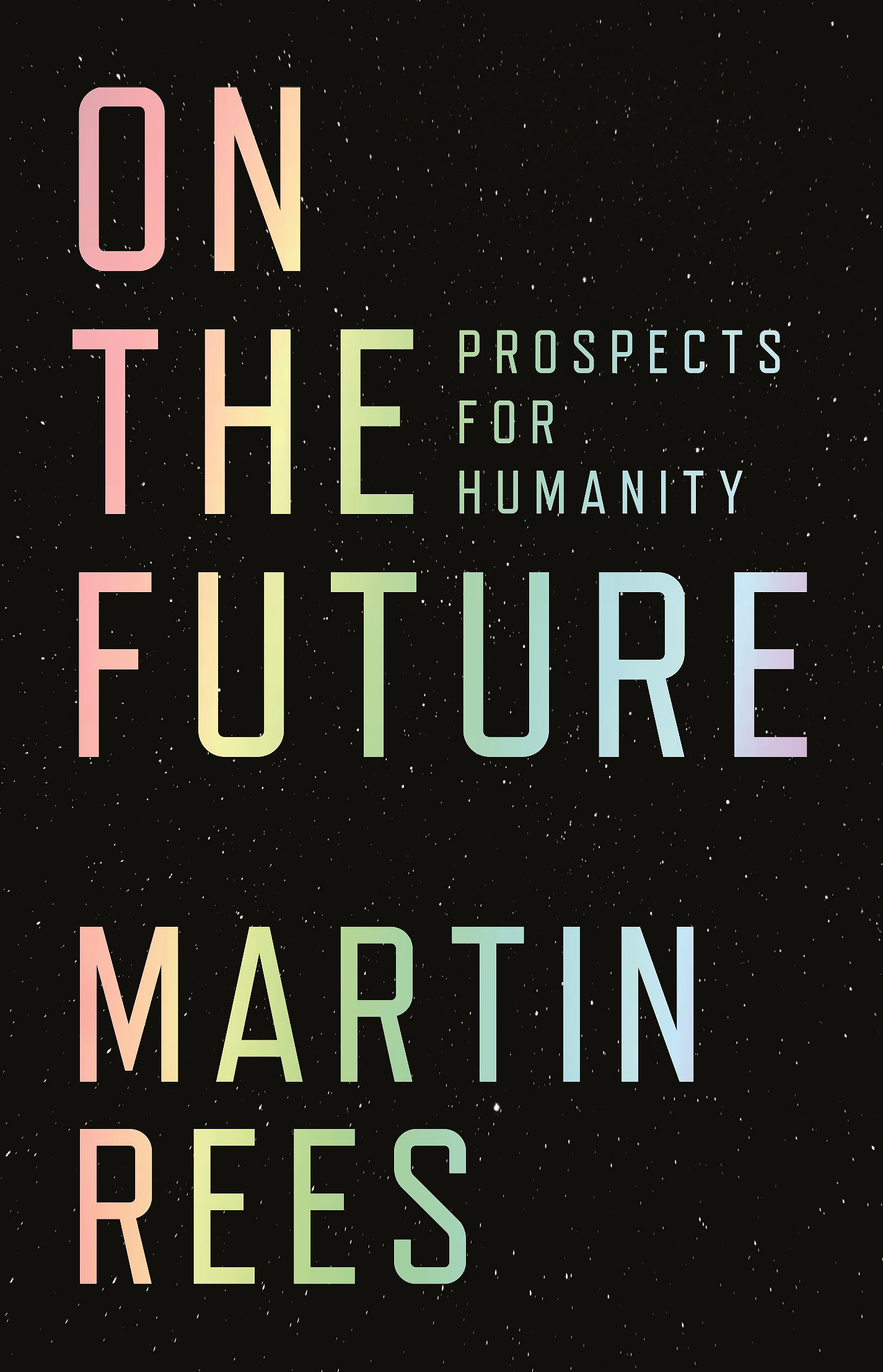
His concern with the impact of human activity on climate and environment, as well as the risks posed by the misuse of artificial intelligence and other information technology, led him to co-found, in 2012, the Centre for the Study of Existential Risk, an interdisciplinary center “dedicated to the study and mitigation of risks that could lead to human extinction or civilizational collapse.” The Centre, based at Cambridge University, seeks “to foster a global community of academics, technologists, and policy-makers working to safeguard humanity.”
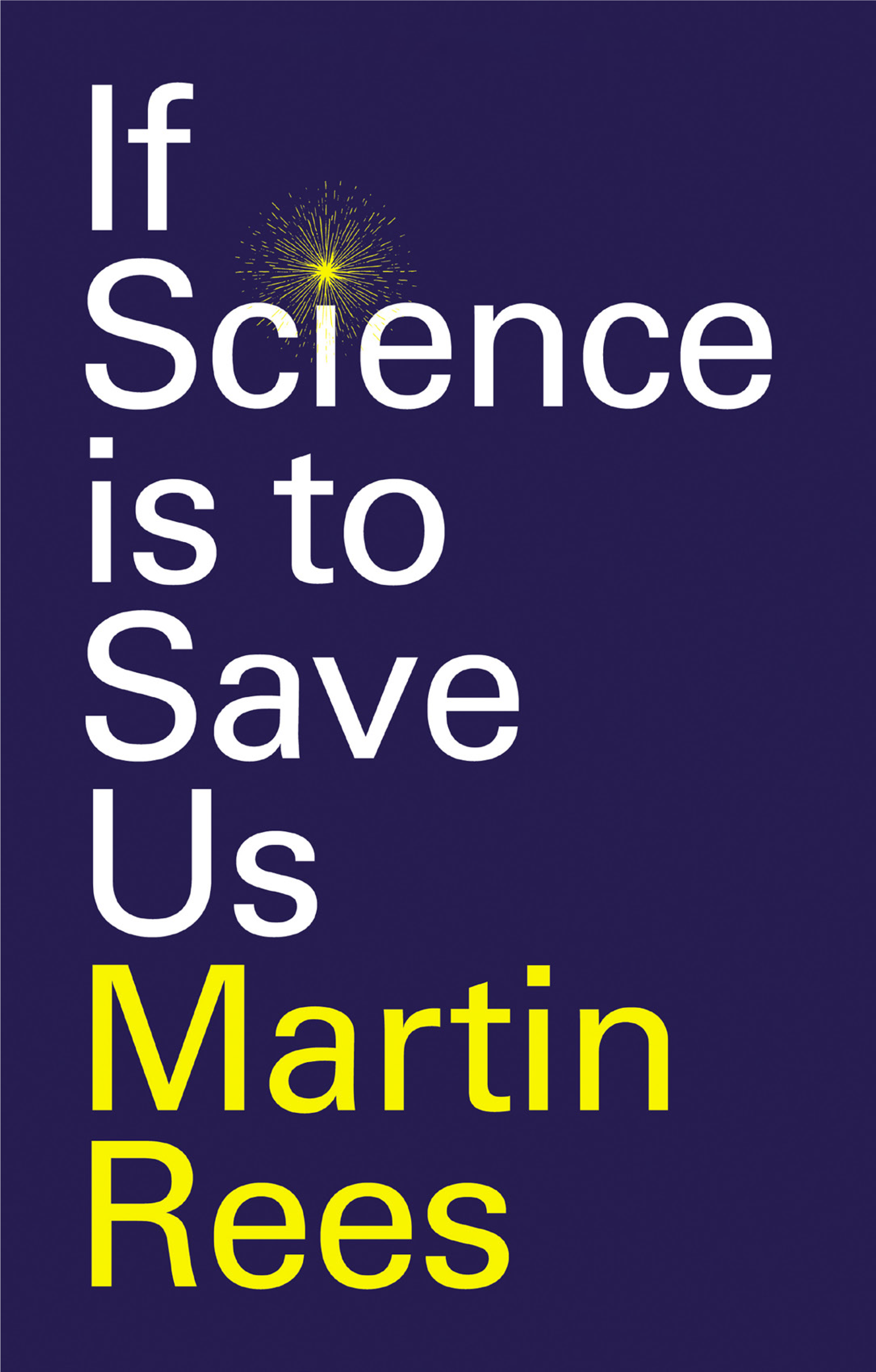
In 2015, he co-authored the founding report of the Global Apollo Programme, which calls for developed nations to commit to coordinated research to make carbon-free power generation more affordable than coal-burning electricity by the year 2025. In his 2018 book, On the Future: Prospects for Humanity, he argues that humanity’s future depends on our taking a very different approach to thinking about and planning for tomorrow. In his latest book, If Science is to Save Us, coming out in November 2022, he makes a compelling case the future of humankind depends on science and on fully integrating that science into human culture and society.

One of the world’s leading cosmologists, Lord Rees is renowned for his pioneering work on galaxy formation, quasars, black holes and the origin of the universe. His early study of the distribution of quasars helped to discredit the formerly accepted “steady-state” theory of the evolution of the universe. His work has provided precious insight into the infancy of the universe, the so-called “dark ages” immediately following the Big Bang.
In addition to his theoretical work, he is acclaimed for his ability to present complex scientific concepts to a nonprofessional audience. Besides his more than 500 scientific papers and academic works, he has published over half a dozen books for the general public, including Gravity’s Fatal Attraction and Before the Beginning: Our Universe and Others.
A senior figure in the British scientific community, he is the former master of Trinity College, Cambridge, a past president of the Royal Society, and now holds the title of Astronomer Royal. Knighted for his services to science in 1992, he was appointed to the House of Lords in 2005 as Baron Rees of Ludlow.
Lord Rees, you’ve noted that our earth is some 45 million centuries old. You’ve expressed concern about one particular century in all that, and that is the 21st century. Can you tell us your concerns about that?
Martin Rees: This is the first century in those 45 million where one species — one dominant species, namely us — can control the planet’s future. And that’s important because astronomers know that although there have been 45 million centuries in the past, the sun is less than halfway through its life. So there are another 60 million centuries to come before the sun dies. And indeed, the expanding universe may go on forever. I like to quote Woody Allen who says, “Eternity is very long. Especially towards the end.”
So we are less than halfway through the life of our solar system, but even in this huge time perspective, extending hundreds of millions of years in the past and the future, this century is indeed special, because it’s the first when one species — the human species — can determine the future, because we are dominant on this planet, and we have huge numbers of people with powerful technology.
I do worry about whether we will get through this century without severe setbacks. I think there are two different classes of risk we need to worry about. The first is the category which we are imposing collectively because there are more of us on this planet, a growing population, and each of us is more demanding of energy and resources. There are now nearly seven-and-a-half billion people on the planet; there will be nine billion by mid-century. We’re not sure what will happen after that; it could go up even more. But also, we’ll all be more demanding in terms of energy and resources. And of course, we hope that the developing world will close the gap with more fortunate countries like ours, and that will, of course, increase the pressure on energy and resources. So there’s a risk that this is going to lead to despoliation of the environment — climate change; it could have severe long-term effects — and to disruption of ecologies, leading to mass extinctions. And of course, those will be irreversible degradations of our environment. So we will not be leaving an environment for future generations as good as the one we inherited. So that’s a serious concern, our collective effects.
There’s a different kind of concern which also worries me, which is that because of powerful technologies, in particular biotech and cybertech and AI, individuals are much more empowered than they were in the past. That, therefore, means that an individual or a small group can, by error or by design, have a consequence, a damaging consequence, that could cascade globally. I like to say that the global village will have its village idiots, but they will now have a global range. And this is something which worries me very much. The new technologies are very exciting, and of course, we depend on new technology in order to feed nine billion people and to provide a good life for them all. So we don’t want to slow down technology. But we do want to redirect it and control it if we can, so as to minimize these serious risks because we are in an interconnected world where a disaster in one region will cascade around the world. No part of the world is isolated from what happens elsewhere now. So we need to be very concerned, and that is why I do worry about how we will get through this century without severe setbacks.
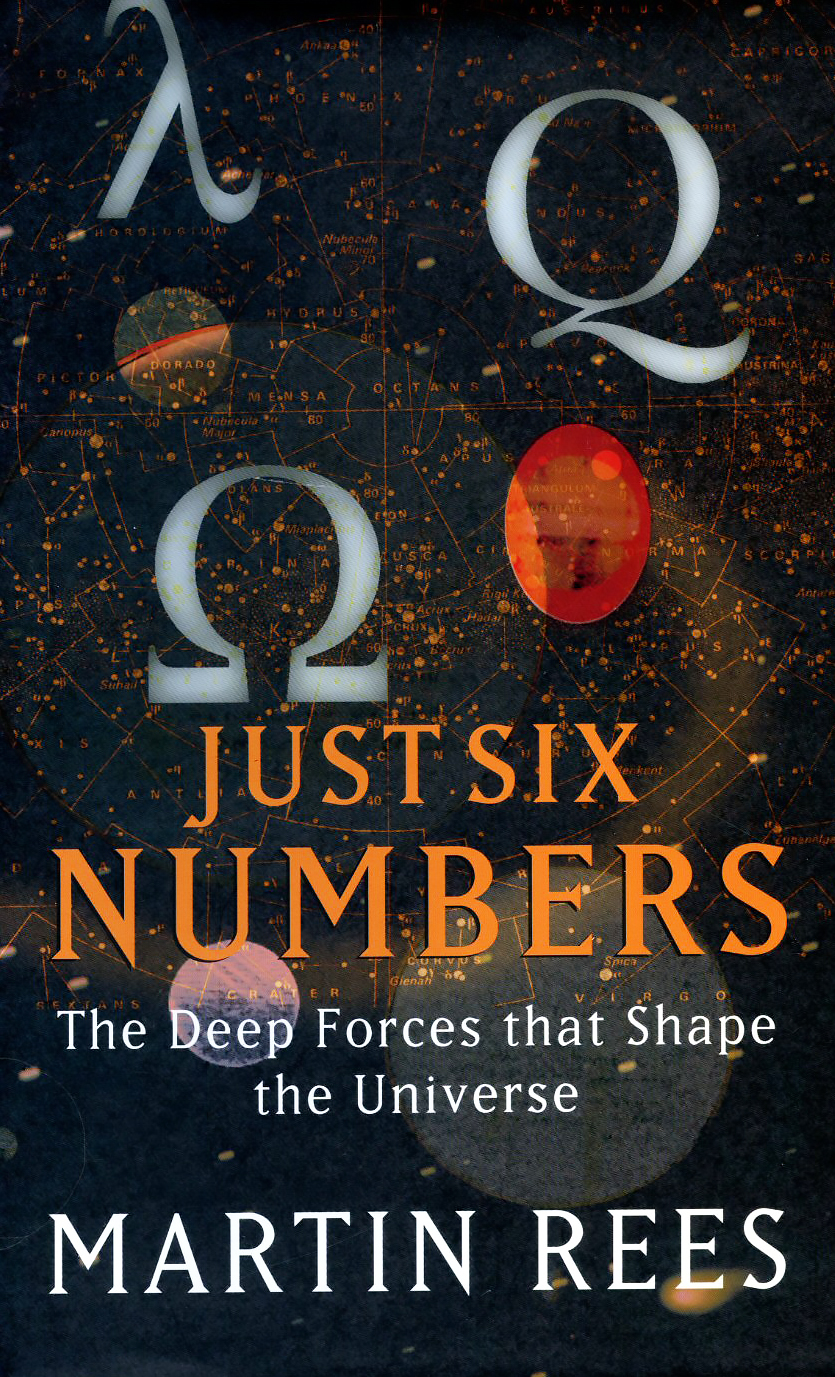
Why do you think climate change is so difficult to address politically?
Martin Rees: I think climate change raises special problems because, first of all, the science is still rather uncertain. Everyone agrees that the temperature on average is going up and that, more importantly, that rise in temperature is going to trigger a big global change in weather patterns, The regions where you have the monsoons, where you have droughts, et cetera, will change. And this will be a disruptive effect on the climate, far more rapid than any natural changes in climate that have happened in the past. But, of course, these timescales, although very short in an astronomical context, are long in a political context, and we’re talking about what will happen in the next few decades and what might make the lives of people now just born — who will be alive in the 22nd century — worse than they are now.
And it’s very hard to persuade politicians to do something now which will not benefit the here and now — between now and the next election — but will have an effect on the lives of children now born who will be alive at the end of the century, and also on the lives of people in the low parts of the world, who will be more affected than we are in Europe and North America.
So that’s why it’s difficult to deal with because, obviously, the focus of most action is the urgent and the parochial rather than the long-term. And for that reason, I think it’s very hard to keep dealing with climate change high on the agenda. I personally think we should be prepared to pay an insurance premium now, as it were, to remove a potentially serious risk from the lives of future generations. But it’s hard to make that point. We’ve got to think of ways in which we can keep that on the agenda.
One policy which I think we can realistically adopt and get countries to accept is to pursue accelerated research and development into all forms of carbon-free energy because those involve exciting new technology and give a boost to the nation that develops them first. And the faster the development proceeds, the sooner will the cost come down. So, for instance, India — which clearly needs to have new sources of power to replace stoves burning wood and dung, which is hugely damaging environmentally — they’ll be able to afford clean energy and not build coal-fired power stations. So we’ve got to accelerate the R&D so that clean energy is as cheap as coal-fired power stations. And then, without any further incentive, India and other countries will go directly to clean energy, leapfrogging the phase when they have huge fossil-fuel power stations. So developing clean energy as quickly as possible is a sort of win-win situation for the world. So that should be our priority. And the amount of R&D in those areas is very small compared to defense R&D, for instance, and medical R&D. And why shouldn’t it be comparable? Indeed, I would say that one of the most inspirational goals for young engineers should be to provide clean and affordable energy for the developing, as well as the developed, world. That would be a very exciting development.
The other thing we can do is really to persuade politicians that they should think about long-term questions. And they will only do this if the public persuades them it’s important. And here, I think the great religions of the world are important. And I would cite as an example the papal encyclical in the summer of 2015, which was a very clear statement about the risks to the natural environment caused by climate change. The Pope declared far more clearly than his predecessors that humans have an obligation to the nonhuman world and the rest of God’s creation, as it were. And this, I think, had a big effect in forging a consensus at the climate change conference in Paris in December 2015. And the reason for that was that, whatever one thinks of the Catholic Church, no one can doubt its long-term vision, its global reach, and its concern with the world’s poor. Therefore, that had a big effect. Politicians don’t listen just to experts. In fact, I know many people who have been political advisers and have been frustrated that the politicians don’t pay much attention to them because they have more urgent issues. But they do pay attention to what’s in the press and what’s in their inbox. So if one can ensure that these issues, like climate change, are more prominent in the public consciousness — and therefore in the press and their inboxes — then they will pay regard to them. And the intervention of the Pope did have such an effect. It had a global effect. He got a standing ovation at the UN. It really had a big effect on opinion in Latin America, both among the public and political leaders, and in Africa and in East Asia — sadly, not much in the American Republican Party, but certainly around the rest of the world.
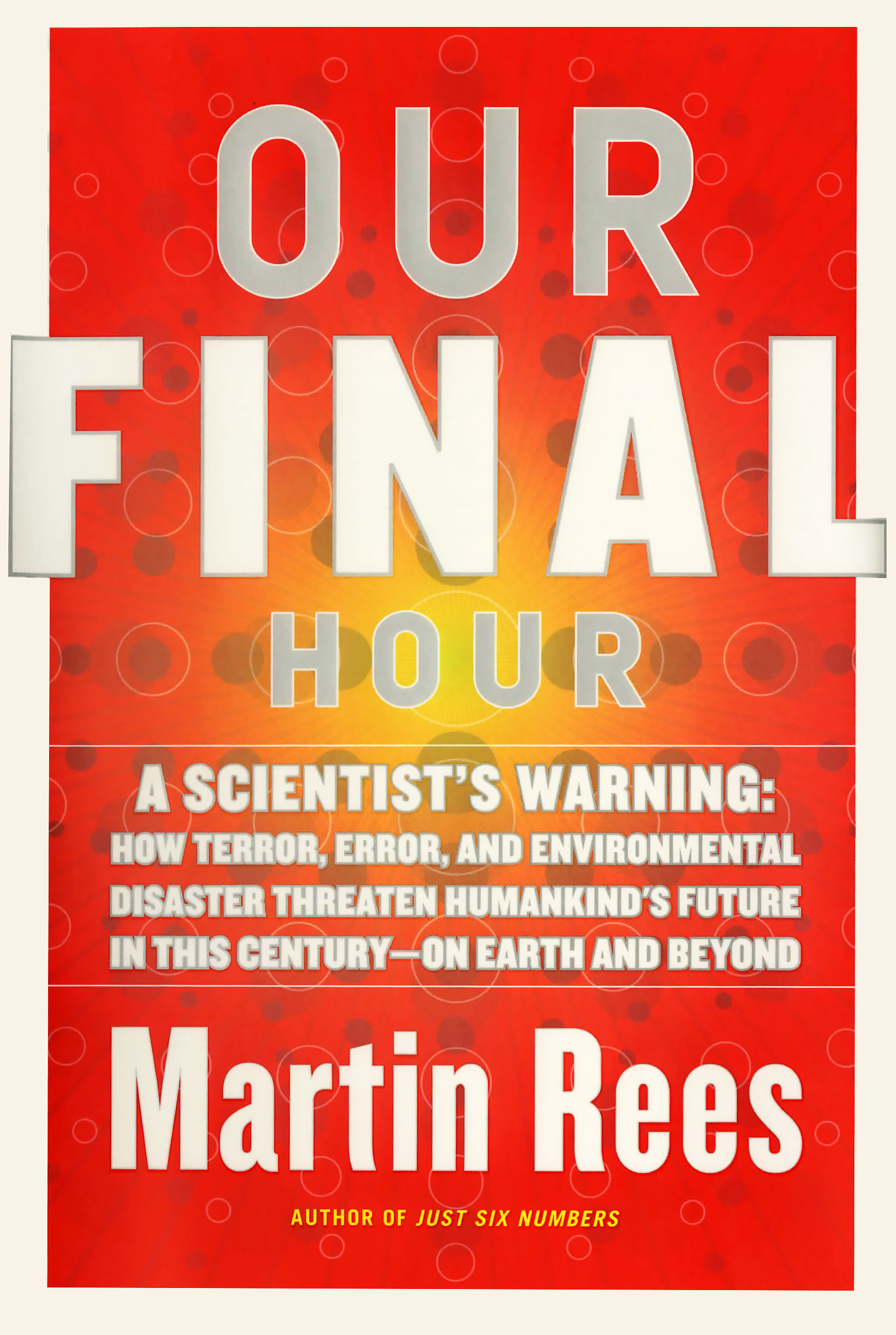
In some recent addresses, you’ve made a very interesting analogy between an asteroid hitting the earth as opposed to the long-term danger of man-made climate change. Could you repeat that?
Martin Rees: Yes. When people know I’m an astronomer, they think that what I worry most about is the risk of asteroid impacts. Now, of course, there is such a risk, and it’s interesting that that’s the one risk that we understand best because we understand how many asteroids there are and what happens if they impact, so we can quantify it. It’s not a very high risk. There’s a chance of a few in a million that we’ll be killed by a huge asteroid landing on Earth in what would otherwise be our lifetimes, so it’s a small risk and it’s not getting any bigger. The risks I worry about most are the risks that are caused by human action and by new technology. They are getting bigger.
Martin Rees: So let’s suppose astronomers had found evidence that there was an asteroid heading for the earth and that we calculated it might hit the earth in 2100. That’s 83 years from now. And suppose we could say that with ten percent confidence, not with certainty. What would the reaction of the public be? Would we say, “Well, in 50 years’ time, we’ll have better technology to deal with it. It may miss us anyway, so let’s do nothing now.” I don’t think we would. I think if that were the case, we would do our damnedest, starting now, to see what we could do to make sure that we could somehow deflect it or minimize its impact. And here’s the analogy with climate change because in the context of our knowledge of climate change now, we can say that there is a ten percent chance that by the year 2100, climate change will have triggered irreversible tipping points, rather like the melting of Greenland’s ice, which would eventually raise sea level by about seven or eight meters and also cause huge global changes in climate. We can’t be sure, but that’s likely. My view is that we should already be prepared to pay the insurance premium to reduce that risk now. We shouldn’t say, “Well, 50 years from now, people will be richer and they will have better technology. Let’s leave it to them.” We should start now. And I think the analogue of the asteroid indicates that it is worth paying an insurance premium now to eliminate a risk, even if it’s an uncertain risk. We shouldn’t just say it may not happen. We shouldn’t say that they can deal with it better in 50 years than we can now. We should already start to see what we can do about it.
You’ve noted the potential dangers in a couple of other areas, such as cybertechnology and artificial intelligence. Could you outline your concerns in these areas as well?
Martin Rees: Cyber attacks are becoming very, very serious, and they’re an example of how just one person can produce a really major disruption by disrupting electric power grids and things like that. This is a new kind of warfare if nations engage in it, but even an individual could cause pretty serious damage.
And similarly with biothreats — the new techniques, for instance, to make the influenza virus more virulent and more transmissible. These have been developed in a few years — a few years ago — and in 2014, the American federal government stopped funding research into these because it was thought to be dangerous knowledge and the risk of the virus escaping, et cetera. So that’s an example where there’s a new technique. And of course, we’ve got the wonderful new gene-editing technique, CRISPR/Cas9, which has huge benefits but also could have unintended consequences if so-called “gene drive” is used to make species extinct, and that has runaway consequences. So there’s a big risk with these things.
Now, quite rightly, there are lots of discussions within scientific academies and elsewhere about how to regulate these new technologies — particularly bio — modeled on a famous conference in Asilomar 40 years ago, in the early days of recombinant DNA, when the researchers agreed to a moratorium and to follow certain guidelines. And in that spirit, there have been, in the last two or three years, similar gatherings of academicians and experts. But things are different this time. They’re different because far more nations are involved. It’s far more widespread. And also, there’s much stronger commercial pressure, which there wasn’t 40 years ago; there was no biotech industry.
And for that reason, I think whatever guidelines we have — and feel should be adopted on prudential or ethical grounds — enforcing them is going to be very hard. I would say it’s going to be as hopeless to enforce them globally as it is to enforce the drug laws or the tax laws. We’ve had precious little success in enforcing either of those. And this I find very scary.
The point is that the equipment that is needed is very modest. Cyber attacks, you just need access to the Internet, and the techniques needed for some of these gene modification techniques are available in university labs and industry, et cetera. It’s not like nuclear, where you can’t build a nuclear weapon in your garage, but it’s going to be conspicuous, and therefore, it’s feasible to have inspection and monitoring of nuclear developments. We can’t do that in these cases, and so my worry is whatever can be done in the bio and cyber area will be done somewhere by someone, and I don’t know what we can do to eliminate that risk.
We can certainly try and reduce it, and I think we should focus very hard on ways to reduce it, to have surveillance, et cetera. Although, there again, there’s going to be tension between security, freedom, and privacy if we want to try and guard against individual lone wolves, as it were, misusing this technology. But I think it’s something we do need to worry about, and that’s — even on time scales of ten or twenty years — what worries me most.
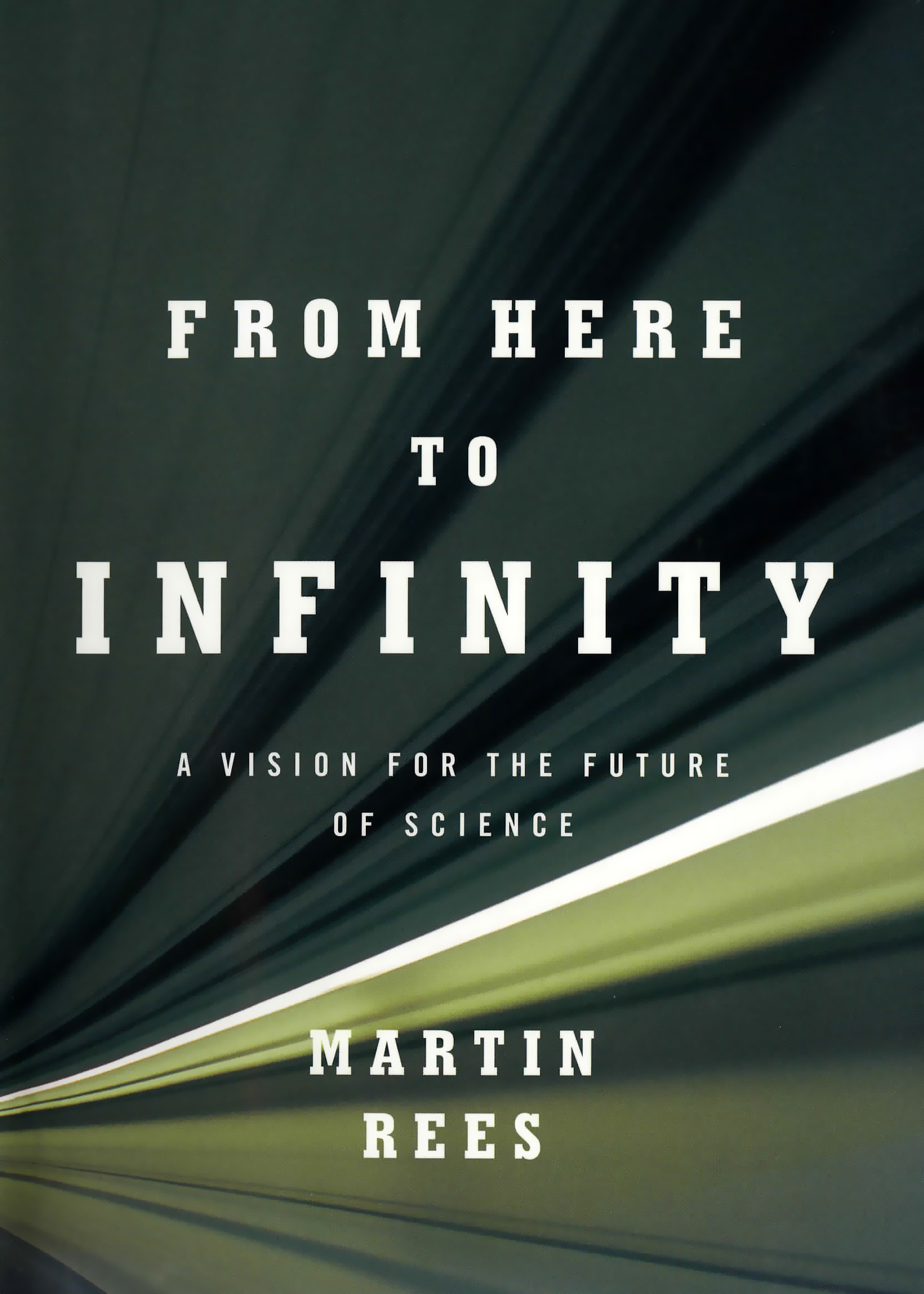
You’ve suggested that there might be a post-human form of intelligence and that we’re probably not the smartest creatures that the future will see. Can you talk about that?
Martin Rees: We certainly shouldn’t think we’re the culmination. Of course, most people — unless they’re creationists in Kentucky or parts of the Muslim world — are aware of the outcome of billions of years of Darwinian selection. But I think even most people who are happy with that somehow feel that we humans are the top of the tree. We’re the end of this process. No astronomers could believe that because astronomers know the time lying ahead is also billions of years. We’re not even in a halfway stage.
As to what will happen in the future, we don’t know. Will it be more organic creatures or not? I would argue that it will be — not natural selection, Darwinian selection — but it will be a new kind of intelligent design where we humans design future organisms. Or more likely, in my opinion, where we develop electronic intelligences which may, within a century or so, surpass what humans do. So it could be that humans are the culmination of organic evolution, but we will jump-start the transition to a new phase of evolution, which will be electronic and entities which have more intelligence, but of course, aren’t biological at all. As to how this will happen, I actually think it’s going to happen on Mars, not here on the earth. And the reason I say that is that if we think about space exploration and space travel, then the case for sending people into space is now getting weaker because robots can do all the things that humans did in the past.
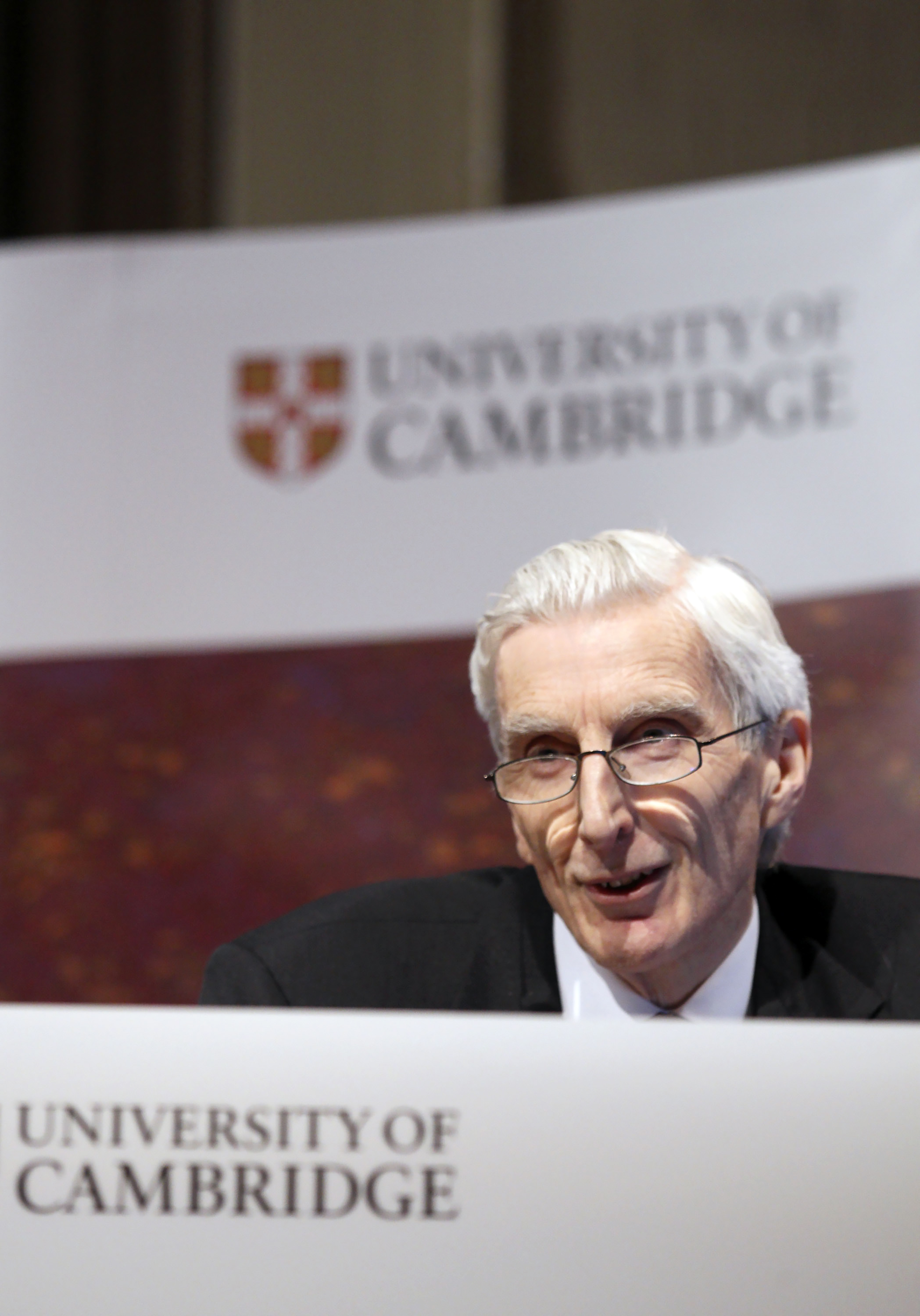
So humans won’t go into space for any practical reason. They’ll only go just for exploration and for an adventure and for thrills. And the people who go will be thrillseekers, like in the U.S., Mr. Baumgartner, who fell supersonically from a high altitude balloon; or in England, a guy called Ranulph Fiennes, who dragged a sled across the Antarctic in winter; and all the crazy things like that. It’ll be people like that who will go on the expeditions and be the first people to try and live on Mars.
And Elon Musk of SpaceX, he’s himself said that he hopes to die on Mars but not on impact. He’s now 46 years old, so he may make that. So there will be, by the end of the century, a community of really eccentric adventurers on Mars. And I think that it’ll be them who develop these new techniques because I hope we’ll be able to regulate the use of both bio and cybertechnology on Earth — there will be regulation. It won’t be fully effective, but I hope it will be effective.
These people trying to live on Mars, they’re very ill-adapted. Humans are very ill-adapted to living in space, especially on Mars. Gravity is different; there’s no atmosphere, et cetera. So they’d have every incentive to use all the techniques of cyber and bio to adapt to that alien environment. And that may involve trying to change and generate intelligent electronic species. And once you’ve got them, then of course, they don’t want an atmosphere at all. They may prefer zero-G, and they’ll go off into space, and this will be the start of a post-human era. And of course, if these entities are near immortal, then a long voyage to the stars won’t deter them. So I think, if you think of the future, then it may be that it’ll be a future of inorganic electronic entities which will spread from our solar system and far beyond in the billions of years that lie ahead. So I think that’s a potential future. But we are well-adapted to being on Earth, so we have less incentive to do it. That’s why I think it’s the crazy adventurers who will be the pioneers of triggering the transition to a new species, as it were. So that’s why I would cheer them on even if I may not want to join them.
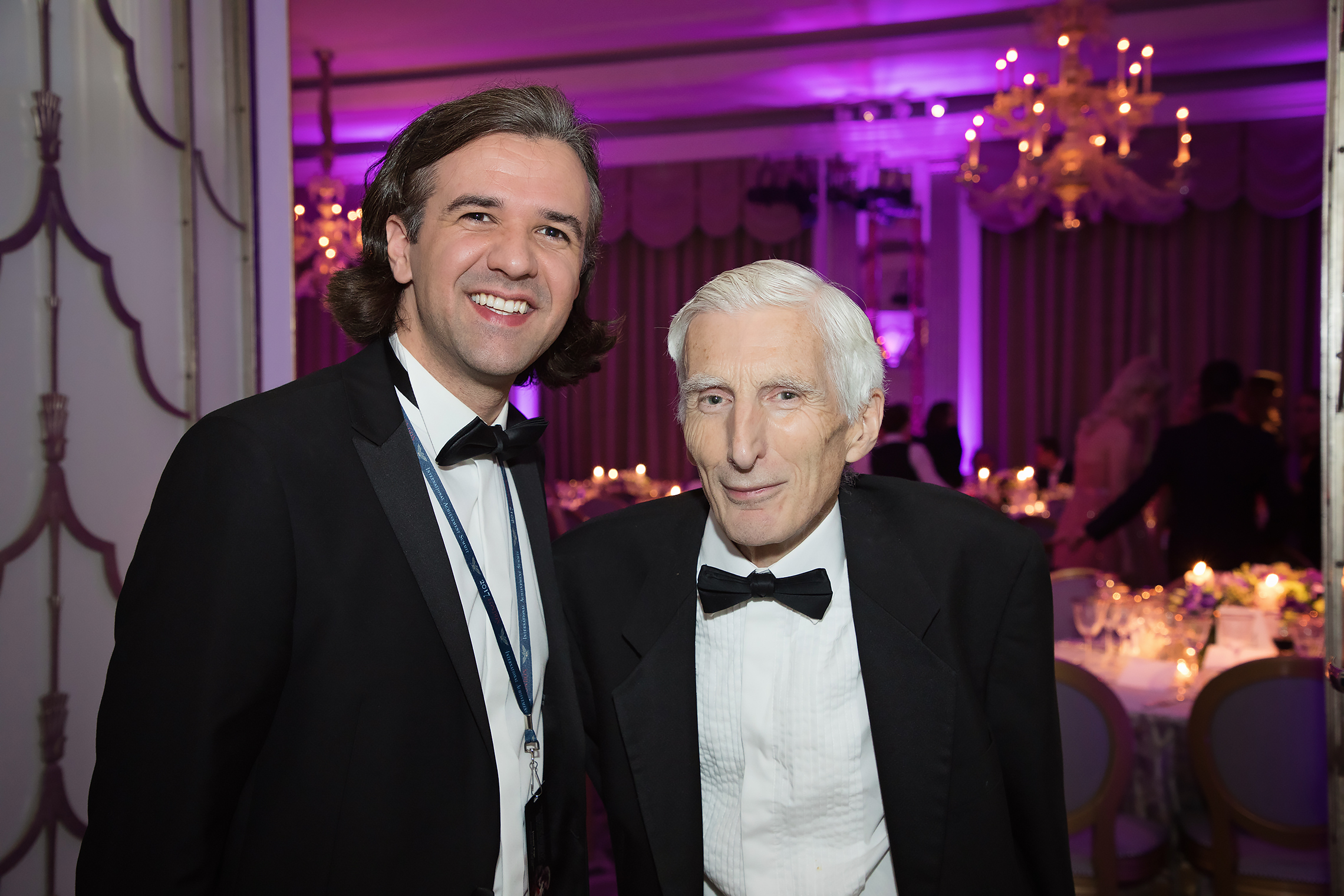
The T.S. Eliot poem says, “This is the way the world ends, not with a bang, but with a whimper…” How does the world end in your view?
Martin Rees: Well, of course, the world could end with a bang all too soon, and if that happened, then this would foreclose the billion-year future of post-human evolution. But of course, what I think is a more plausible scenario is that here on Earth, we will continue as humans, with some setbacks, and with some evolution, but that life will spread beyond the earth. And that that life spreading beyond the earth will have a future of maybe billions of years, evolving in ways we can’t predict. And evolving in ways that are not Darwinian selection but intelligent design by the creatures themselves, which will have human intelligence. So that’s one scenario. Of course, the other thing which will affect the long-term future is whether there’s life out there already. Because it’s gratifying, in a way, that even if life was unique to this earth — making our pale blue dot in the cosmos important, not just to us but on a cosmic scale — then that doesn’t mean that life will forever be a sort of minor feature of the galaxy. It could spread, in its far future, elsewhere.
But of course, one of the fascinating issues for us as astronomers, and indeed for biologists, is to ask, “Is there life out there already?” One of the things we are doing now is understanding the likelihood of life. And also, can we detect it?
There are some projects now to actually look for any evidence for something artificial out there. Some artifacts, or some kind of transmission in radio or optical light, which is not natural, which is either something beeping away or some very narrow band signal which can’t be explained naturally. Because if we could find any evidence for something which was artificial like that, that would be a huge discovery because it would show that concepts of logic and physics weren’t limited to the hardware in human skulls but had emerged somewhere else. Of course, what is out there, it may not be anything like us. It could be some machine made by some long-dead civilization, which is beeping away or malfunctioning in some way.
I think, even if we detect something which is artificial, it’s most unlikely it’s a message and aimed for us, et cetera, as some science-fiction stories say. But nonetheless, if we could find anything manifestly artificial out in the cosmos, that would tell us that the cosmos is even more interesting than we think it is because complex evolution would have happened somewhere else. So that’s why I’m extremely in favor of using all the techniques we now have to look for evidence for something artificial out there, as well as, of course, trying to understand the natural environments, not just on Earth but in the cosmos.

